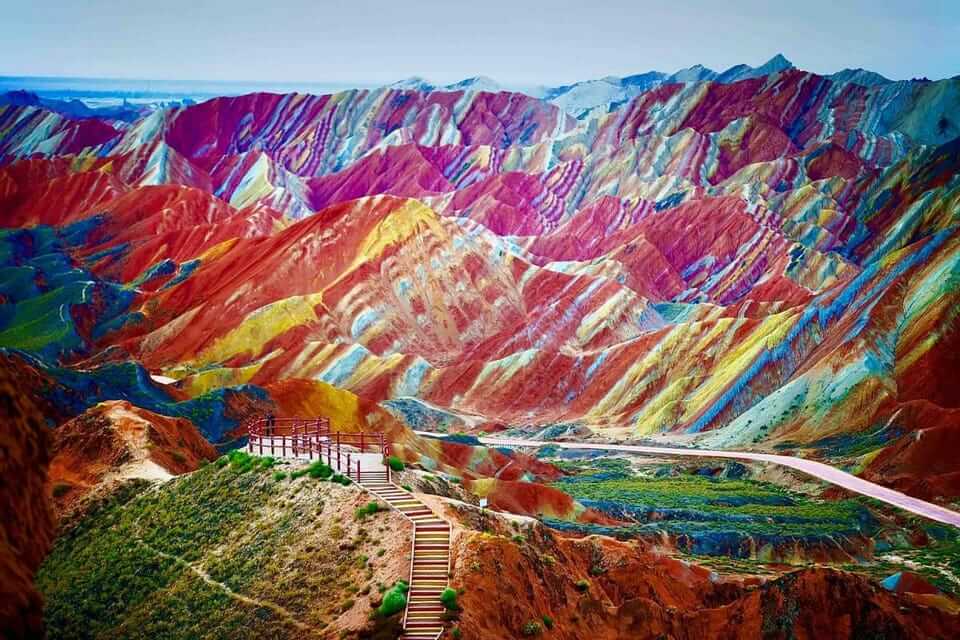The Great Gobi, the largest desert in Asia, covers the southern part of Mongolia as well as Gansu, Hoh Lake Province, Inner Mongolia, and Xinjiang Uyghur Autonomous Region of China. For our country, amazing natural formations, sand dunes, and dinosaur fossils are the main advantages of attracting tourists to Gobi, while our neighbors in the south are creating a tourist zone by combining man-made attractions with natural beauty, establishing national parks, and redeveloping historical and cultural monuments. So let’s introduce the amazing places in China Gobi.
Zhangye Mountains
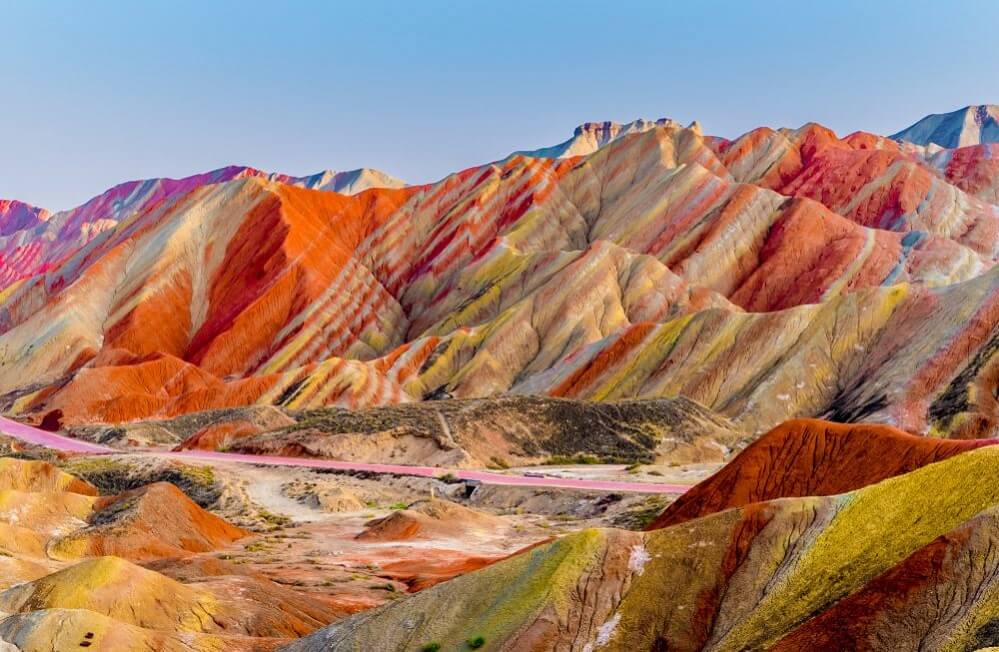
Famous for its historical Horse Hoof Temple (Mati Xi) and Rainbow Mountains, Zhangye is one of the most beautiful places in Gansu Province. Zhangye is a small city located on the Silk Road, where you can see some of the most unique and awe-inspiring desert scenery in western China. The 2,000-year-old settlement is a must-visit for those who want to explore the history and culture of the Silk Road.
Crescent Lake, Dongguan
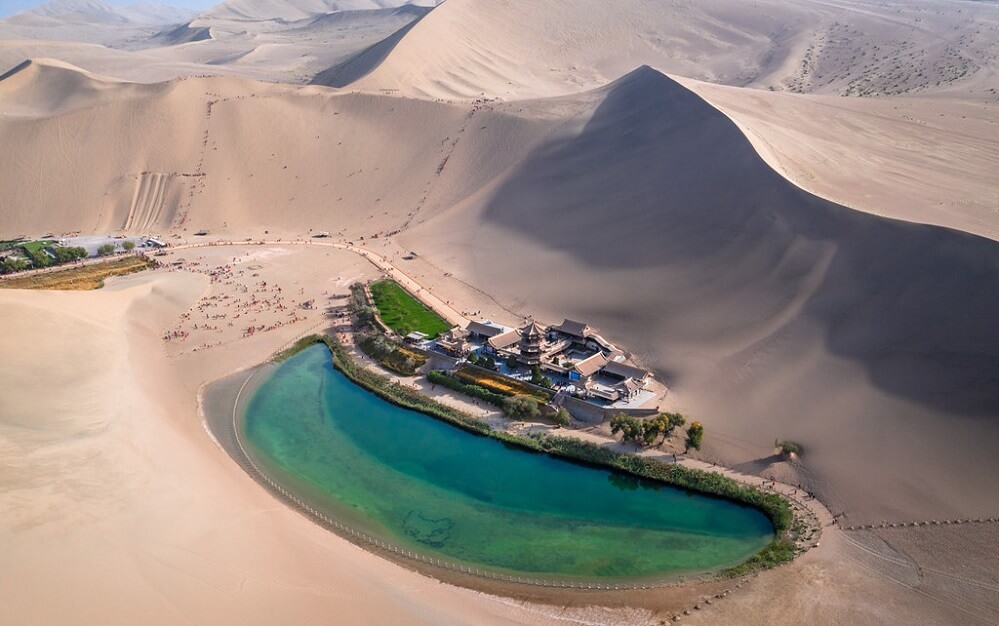
The beautiful “Crescent Lake” is located in the middle of the sand dunes, 6 km away from Dongguan, which was a trading city of the Silk Road in Gansu Province. Since the 1970s, the oasis, which had almost dried up, has been restored and turned into a religious pilgrimage and tourism area.
Another wonder of Dongguan is Mogao Cave, the “Cave of 1000 Buddhas”, which is a UNESCO World Heritage Site. The cave is a must-see for art and history lovers.
From the 4th to the 14th century, Buddhist mantras, statues, and paintings were hand-carved on the rocks of the cave. Fortunately, thousands of these artifacts are preserved in the cave, making Mogao Cave the largest Buddhist museum in the world.
Hezuo
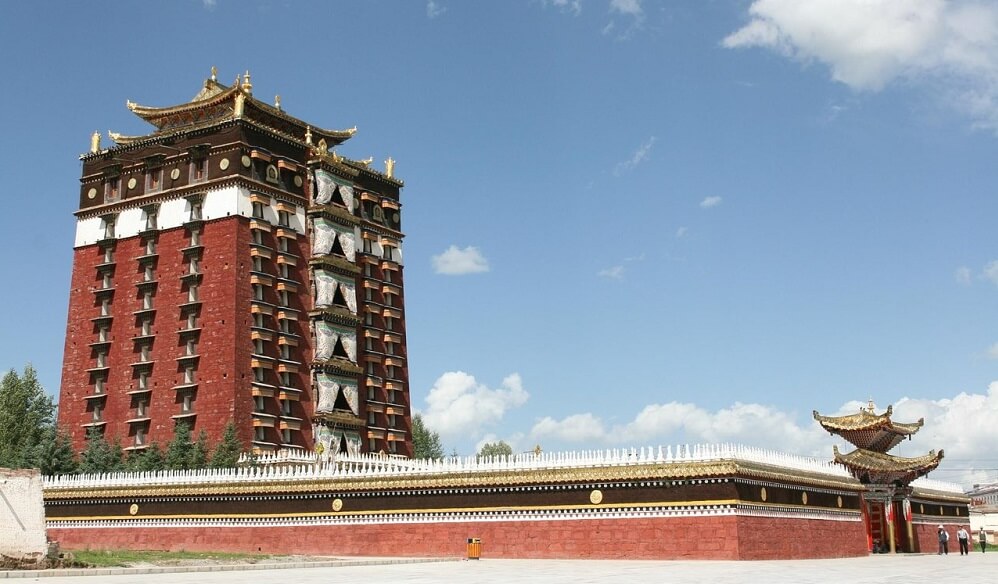
Hezuo is the capital of Gannan Prefecture in southern Gansu Province. Located at the crossroads of Gansu, Qinghai, and Sichuan provinces, Amdo is a historic stopover for Tibetan nomads. Therefore, the city has been considered a trade and service area in the region since early times. Therefore, by visiting this place, you can see historical monuments that cannot be found anywhere else.
Yadan National Geological Park
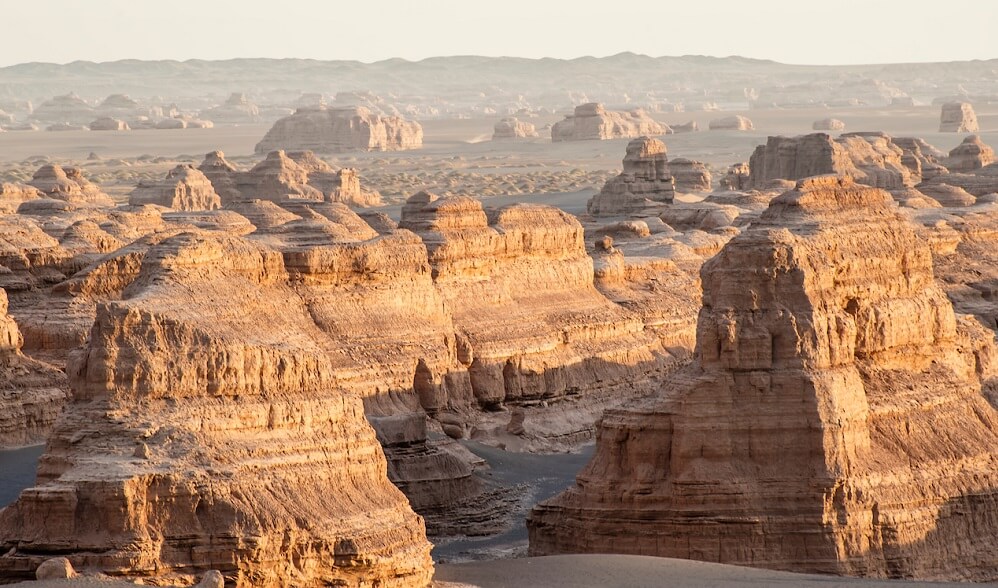
Located 180 kilometers northwest of Dunhuang, Yadan National Geological Park covers an area of 398 square kilometers and is considered the largest in China. The reason why the place is called “Devil’s City” is because of its unique natural formations, the sound of whistling wind can be heard like a scream.
Because of its remote location and unique desert formations, several war movies have been shot here.
Bingling Church
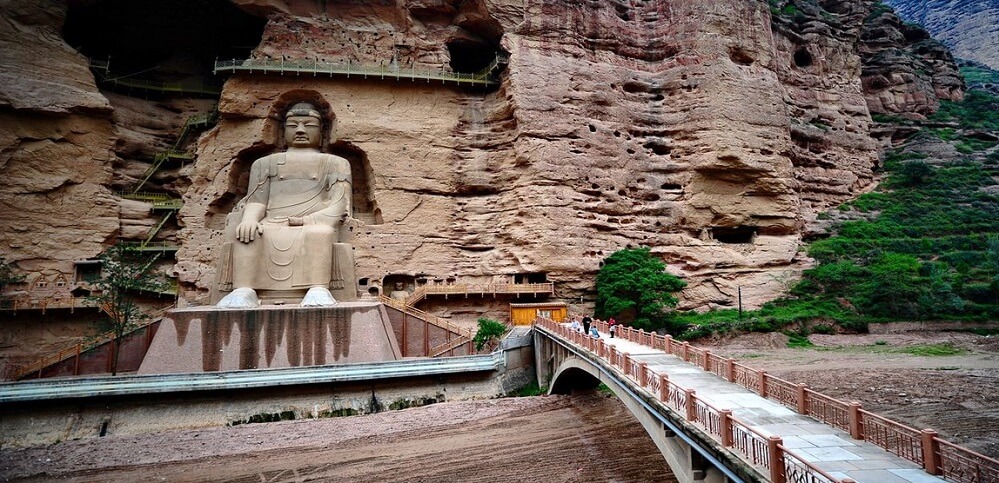
Bingling Temple is a site of Buddhist sculptures carved into a canyon cave along the Yellow River. The largest of them is a 27-meter-tall Buddha statue carved into the cliff.
Bingling Temple is a 1.5-hour drive from Lanzhou, the capital of Gansu, making it a great day trip. You can also visit Bingling Temple and visit Lavrin Monastery or Hezuo and Langmusi in southern Gansu Province.
Maijishan Grottoes
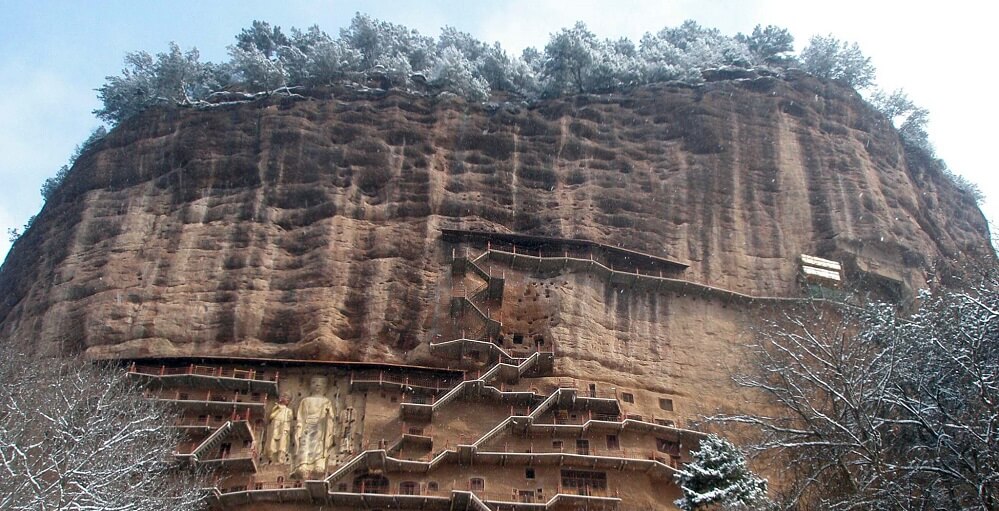
Among the green mountains southeast of Tianshui is the most famous Buddhist rock carvings along the Maijishan Silk Road. The steep cliffs of Maijishan have 194 caves, where more than 7,800 sculptures were carved during the Northern Wei and Zhou dynasties (386–581 AD).
Jiayuguan And The Western Great Wall
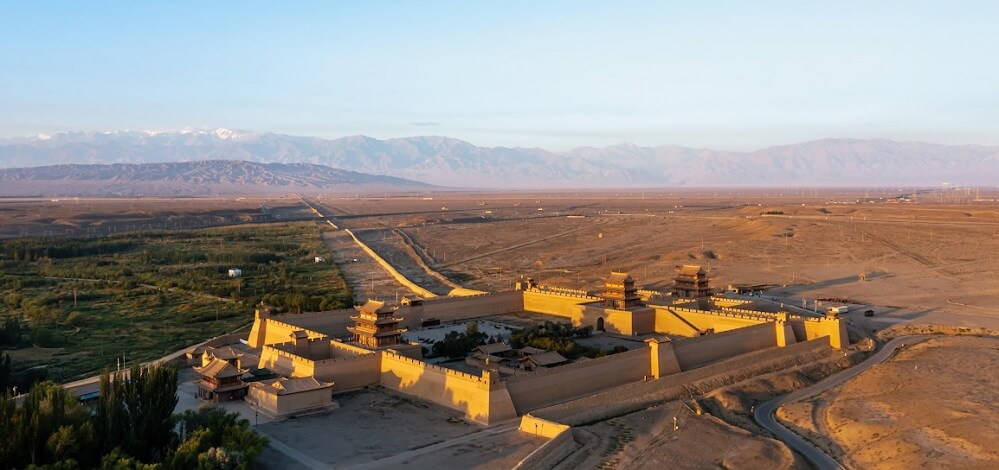
Jiayuguan Pass is a symbol of western China. Nestled between the peaks of the 6,000-meter Qilian Mountains and the Black Mountains of Maajinsang, this fort was considered an important strategic location in the early days. Built-in 1372, this fort was the last major fortification built by the Chinese.
At the same time, Jiayuguan Pass was the main point of the ancient Silk Road. It is said that when foreign travelers and traders came here, they knew that they had reached China.
Sands of Badain Jaran
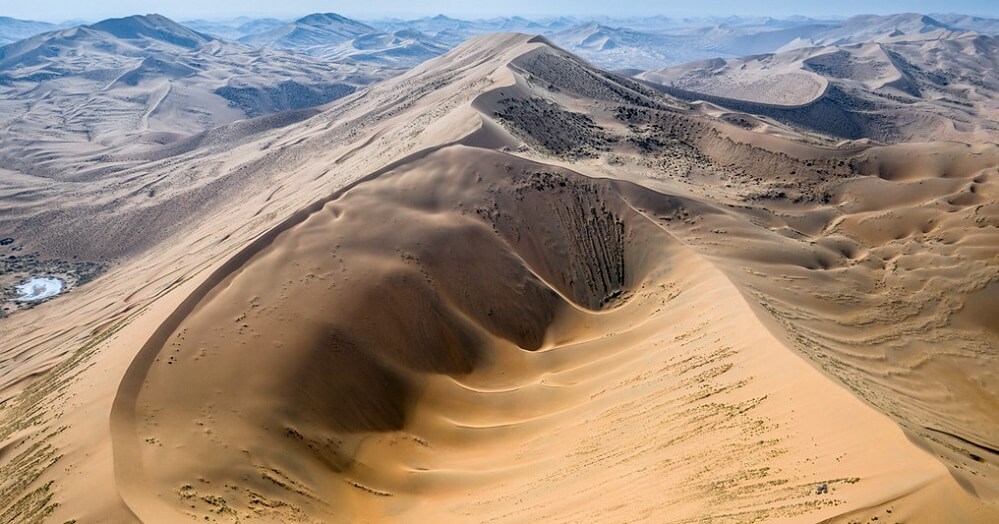
The sand dunes of Badain Jaran, located in the Western Alshaa Cape of Inner Mongolia, are the largest sand dunes in China.
High dunes, “singing” sand, more than 140 lakes of different colors, and ancient temples, there are many things to see in Badain Jaran.
Poplar grove of Ezne Cape

The largest collection of poplar trees, which are remarkably resistant to the harsh conditions of the desert, can be seen in the oases of Inner Mongolia’s Ezneh Khoshun. The combination of deep blue sky, golden yellow trees, and clear water lake attracts a lot of tourists from the south.
Sculptures in Guangzhou
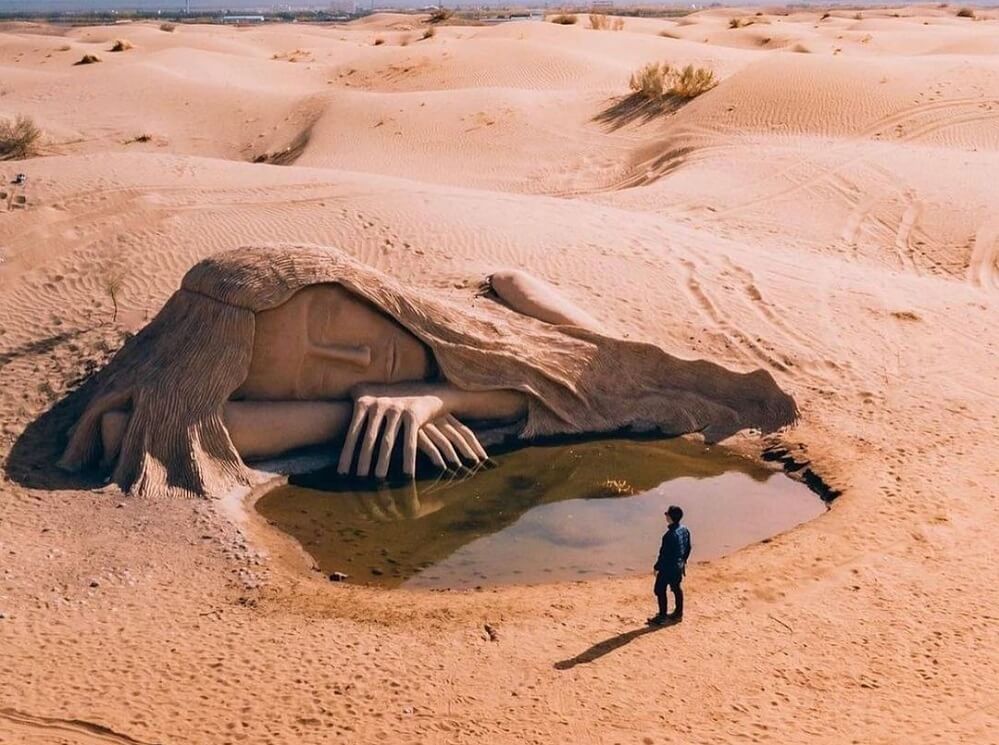
Dong Shubin, a famous Chinese sculptor, and professor at Tsinghua University have created giant sculptures with mysterious meanings in the middle of the desert of Guangzhou County, bordering Gobi-Altai Province, in the northern part of Gansu Province. One of them, the sculpture “Sleeping Beauty” was created in the middle of the sand dunes, next to a small pond.
Son Of The Earth
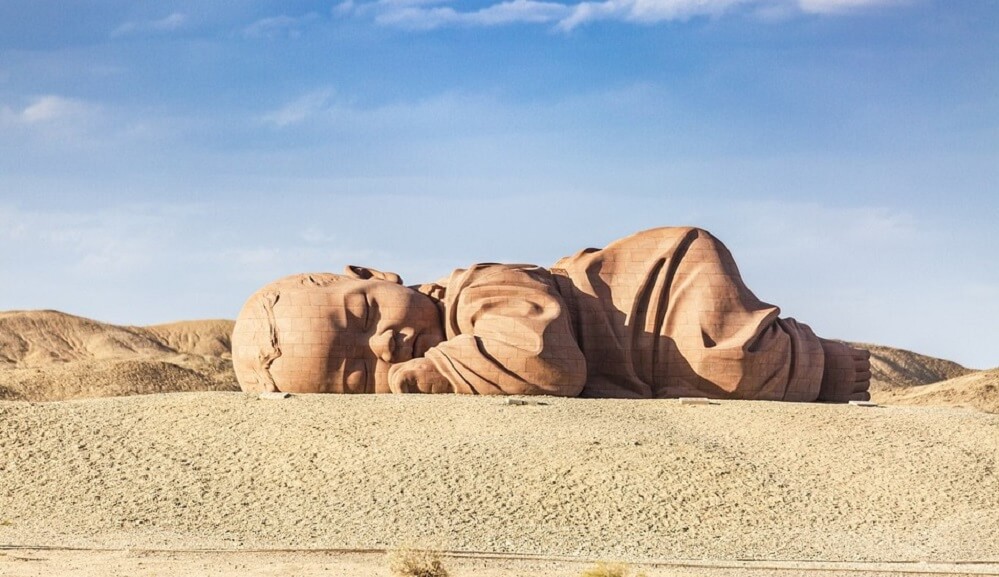
The “Son of Mother Earth” sculpture, pictured below, is 15 meters long and 4.3 meters high and is cut from red granite by 3D printing. The image of a cute boy sleeping peacefully symbolizes the beginning of life’s hopes and dreams.


